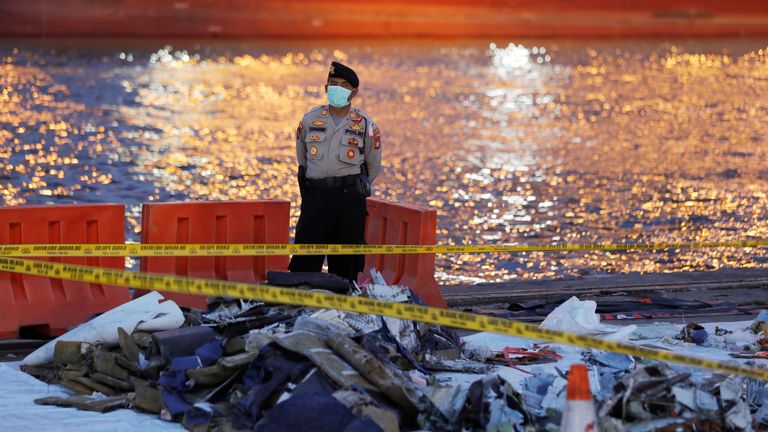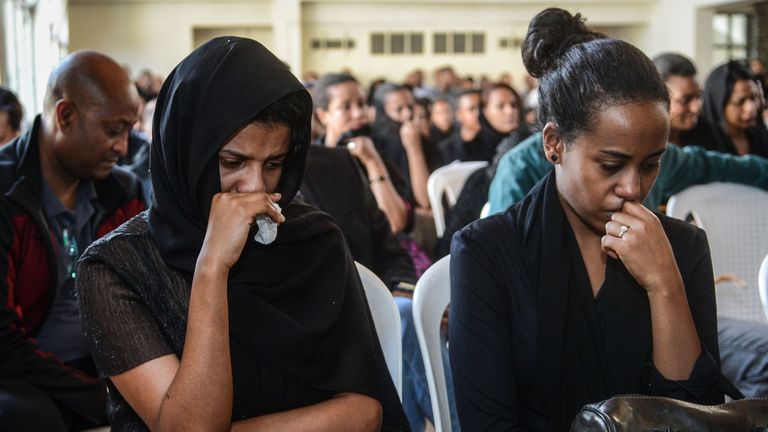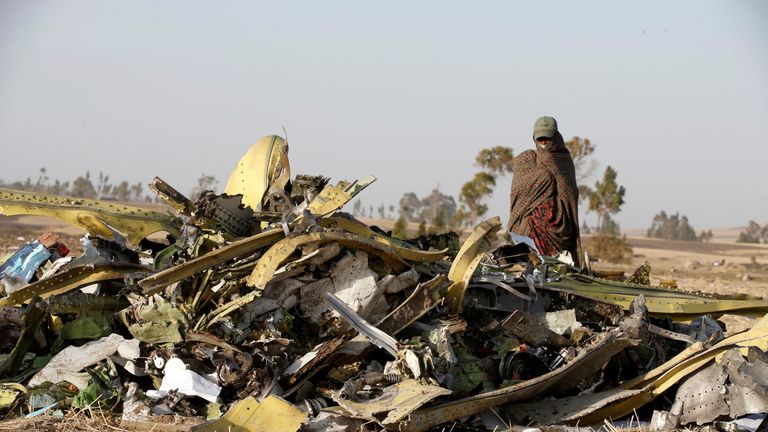Europe and others ban Boeing 737 MAX 8 but US stands firm

Countries around the world have banned the Boeing 737 MAX 8 from their skies but the US has so far stood by it.
The UK, France and Germany were among those to ban the aircraft but their actions were mostly superseded when the European Aviation Safety Agency announced it was banning the planes from its airspace.
This meant that some planes had to be diverted or returned to their departure airports. Among them were two Turkish Airlines flights bound for the UK.
Other countries to suspend the MAX 8 included China, Ireland, the United Arab Emirates, Australia and Singapore.
The moves come due to safety fears after two fatal crashes involving the aircraft model.
On Sunday an Ethiopian Airlines flight crashed just minutes after take-off from Addis Ababa, killing 157 people.
In October last year, a Lion Air flight crashed off Indonesia, killing 189 people.
But the US Federal Aviation Administration has stood almost alone in refusing to ban the aircraft from American airspace.
The FAA’s acting administrator, Daniel Elwell, said: “Thus far, our review shows no systemic performance issues and provides no basis to order grounding the aircraft.
“Nor have other civil aviation authorities provided data to us that would warrant action.”
Earlier, the FAA said it expected Boeing to roll out improvements to a computerised flight management “anti-stall system” in the next few weeks.
In the US, the pilots’ association for Southwest Airlines, one of those using the MAX 8, said it was “extremely confident that our entire fleet, including the MAX, is safe”.
But many of its passengers were tweeting to the airline’s customer service employees asking if their flight was on a MAX 8 or threatening to cancel their flights if they could not be assured of safety.
The Association of Professional Flight Attendants, representing more than 26,000 flight attendants at American Airlines, called on their chief executive, Doug Parker, to “strongly consider grounding these planes until an investigation can be performed”.
Boeing stood by the aircraft, saying: “We understand that regulatory agencies and customers have made decisions that they believe are most appropriate for their home markets.
“The United States Federal Aviation Administration is not mandating any further action at this time, and based on the information currently available, we do not have any basis to issue new guidance to operators.”
Donald Trump offered his thoughts on the issue, saying that planes were “becoming far too complex to fly”.
He added: “Split second decisions are needed and the complexity creates danger.”
Canada, the other major country that has not moved to ban the planes, said it was working with the US Federal Aviation Administration to determine if action is required.
Canadian transport minister Marc Garneau said “all options are on the table”.
Another holdout was Kenya, despite the country losing 32 citizens, more than any other.
Instead, Kenya’s transport minister tried to reassure people that no Kenyan airline has the Boeing 737 MAX 8 plane.
Boeing’s 737 has flown for more than five decades and the MAX 8, with bigger engines designed to use less fuel, entered service in 2017.
The planemaker had hoped the aircraft would become the workhorse for global airlines.
Meanwhile, another British victim of the crash was named.
Oliver Vick had been working for the UN in Somalia and the global body said on Twitter that they “mourn the loss of a passionate and talented friend who worked tirelessly for peace in Somalia”.
Source: Read Full Article


